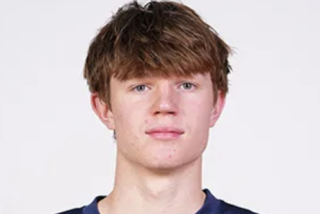Student Displays Right Chemistry in Contest
- Share via
When his high school graduation day arrived in June, Jordan Krall whooped it up with the rest of his Harvard-Westlake School classmates.
But in the back of his mind was organic chemistry.
After receiving his diploma, the 17-year-old immediately hit the books, absorbing material not covered by his honors and Advanced Placement courses. The payoff came last weekend when he earned a silver medal at the International Chemistry Olympiad in Montreal. He returned home to Encino on Tuesday.
“Between the time I graduated and three weeks later all I did was read the organic [chemistry] textbook,” Jordan recalled. “People were like, ‘What’s wrong with him?’ ”
Jordan, also a standout pitcher and shortstop who batted .321 for the Harvard-Westlake baseball team this spring, was one of four members of the U.S. chemistry team. One teammate, Jason Chen of Claremont, became one of 21 gold medalists. About one-fifth of the event’s 183 participants took home silvers.
The four Americans were picked from 20 finalists who spent two weeks at an intensive chemistry camp at the U.S. Air Force Academy in Colorado Springs, Colo. Those 20 came from an original pool of about 10,000 applicants.
The 10-day Olympiad includes sightseeing, mingling among teams from 47 countries and time to study for the two phases of the competition: laboratory and written exams.
Jordan observed that the European teams didn’t spend much time studying. “I don’t know, maybe they just don’t like to think about it right before,” he said.
Stephen Marsden, who taught Jordan chemistry at Harvard-Westlake, pointed out that European students have an advantage in international competition because they learn organic chemistry, which is the study of carbon compounds. In the United States, inorganic chemistry is widely taught.
“When he asked me to tutor him in organic, I was really rusty,” Marsden said with a laugh. “He did better than I did.”
More to Read
Get our high school sports newsletter
Prep Rally is devoted to the SoCal high school sports experience, bringing you scores, stories and a behind-the-scenes look at what makes prep sports so popular.
You may occasionally receive promotional content from the Los Angeles Times.




